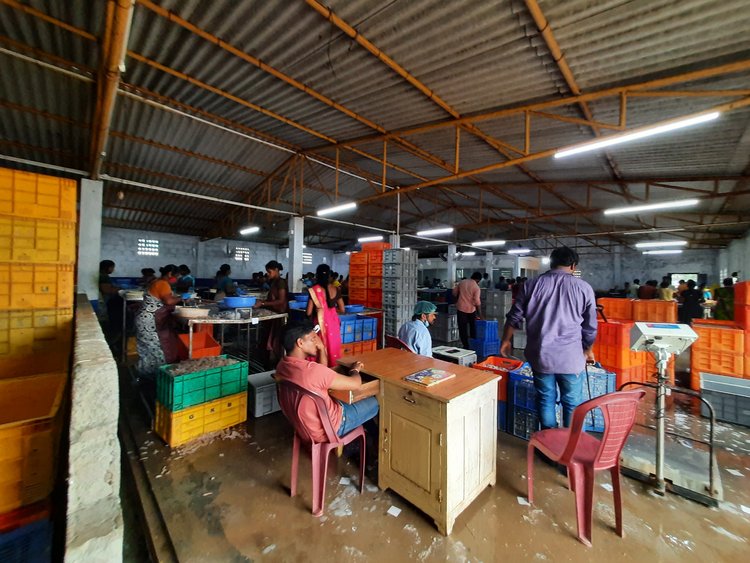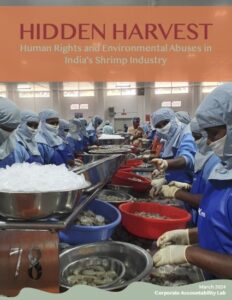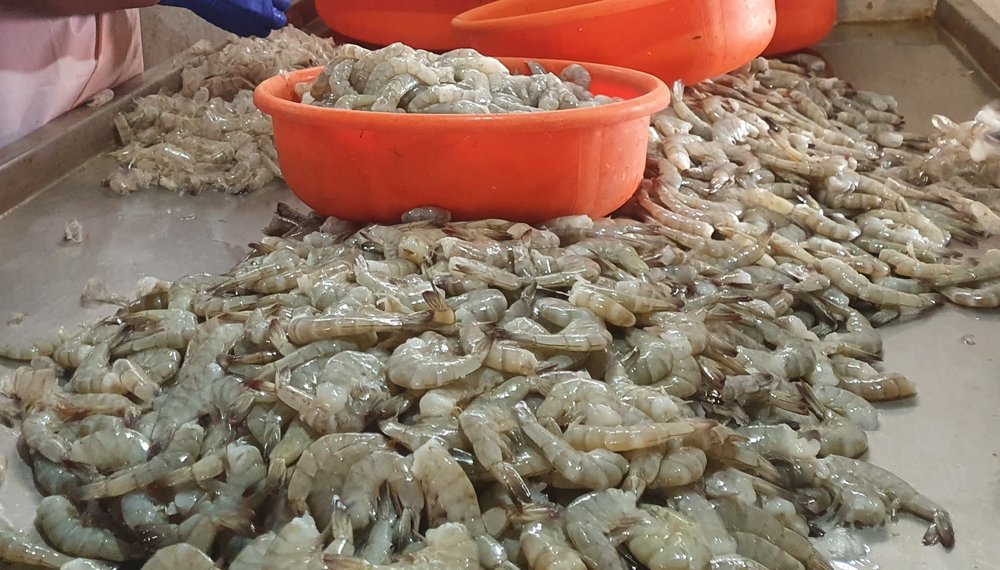Indian shrimp farmers accused of major human rights violations

India’s extensive shrimp farming industry has been accused, in a new report, of large scale human rights abuses and unacceptable employment practices.
The report has been published by the international human and labour rights organisation, Corporate Accountability Lab (CAL).
It has carried out a three year long investigation into India’s multi-billion dollar shrimp aquaculture industry .
The CAL report, Hidden Harvest says: “Over the past decade, India has emerged as the United States’ leading source of shrimp, the most consumed seafood in the country.
“However, this success is marred by a production process that relies on forced labour, dangerous and abusive working conditions, and environmental destruction to meet demands for ever-lower prices.
“While countries like Thailand, China, and Bangladesh have faced criticism for similar abuses, India, which supplies almost 40% of U.S. shrimp imports, has remained under the radar with little public scrutiny – until now.”
The CAL investigation found that the Indian shrimp workforce is primarily composed of workers from Dalit, Adivasi, and fisher communities, many of whom are internal migrants and from regions with few employment options.
Migrant workers are particularly vulnerable to exploitation, the report says, because they are far from home, may lack social networks, and often have few other job opportunities. Through recruiters, companies prey on the vulnerability of those needing work. Recruitment loans tie workers to jobs, keeping them in debt bondage. Most workers in the Indian shrimp industry lack contracts with their employers, resulting in job insecurity and the absence of a formal connection to companies.
CAL says: “These hidden, informal workers are at high risk for forced labour – especially those whose housing is tied to their employment, a common practice across the supply chain. Workers report an exploitative relationship with employers and feeling trapped in abusive jobs with few alternative means to earn a living. Child labour is also prevalent, with young teenage girls working in processing facilities to help support their families.”

Call for action
Chicago-based CAL says its report challenges the current narrative and issues an urgent call to action. As demand for shrimp continues to grow, so must the pressure on companies and governments to identify and remedy the sector’s pervasive forced labour, abusive conditions, and environmental harms, the report argues.
It calls on American retailers and wholesalers to push for changes in the Indian shrimp sector and to promote the implementation of agreements between companies and independent worker organisations.
CAL also says the US and Indian governments should vigorously enforce laws meant to prohibit labour and environmental abuses, reducing the ability of companies to ignore accountability.

Shrimp in a peeling shed, Andhra Pradesh (photo: CAL)

